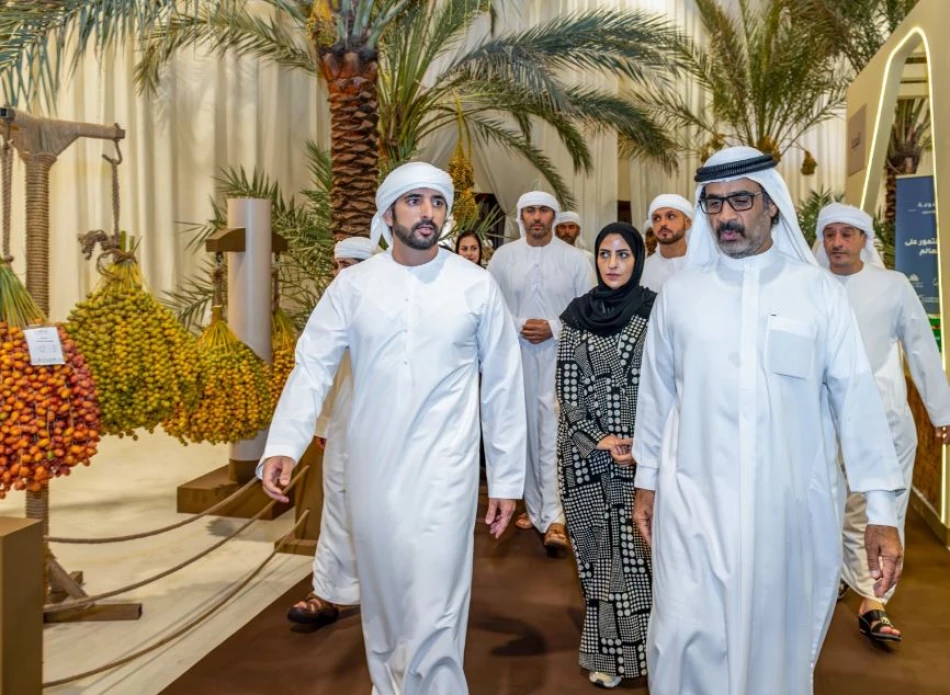
Dubai Crown Prince Explores Vibrant Dates Festival, Highlighting Local Produce and Cultural Traditions
Dubai Crown Prince Champions Cultural Heritage with Million-Dirham Grant for Date Festival
Sheikh Hamdan bin Mohammed bin Rashid Al Maktoum, Crown Prince of Dubai, has allocated one million dirhams to support participants in Dubai's annual date festival, underscoring the UAE's strategic commitment to preserving cultural identity amid rapid modernization. The gesture reflects a broader regional trend where Gulf states balance heritage preservation with economic diversification goals.
Royal Patronage Elevates Traditional Agriculture
During his visit to the "Dubai for Dates" festival organized by the Hamdan bin Mohammed Heritage Center, Sheikh Hamdan toured various sections dedicated to palm cultivation and its societal impact. The Crown Prince's personal involvement signals the high priority Dubai places on maintaining agricultural traditions that have sustained the region for millennia.
The million-dirham grant represents more than ceremonial support—it provides tangible financial backing for participants who maintain traditional date cultivation practices. This approach mirrors successful heritage preservation models in other Gulf states, where government funding has proven essential for keeping traditional industries viable.
Strategic Heritage Investment in a Diversified Economy
Abdullah Hamdan bin Dalmouk, CEO of the Hamdan bin Mohammed Heritage Center, emphasized that the Crown Prince's support extends beyond individual events to encompass a comprehensive vision for heritage preservation. "The palm tree is part of the UAE community's consciousness," he noted, highlighting how traditional agriculture remains culturally significant despite the country's evolution into a global business hub.
Economic and Cultural Synergy
The festival exemplifies Dubai's approach to heritage tourism, where traditional practices become economic assets. Date cultivation, once purely subsistence agriculture, now serves multiple functions: cultural preservation, tourism attraction, and agricultural diversification. This model has proven successful across the Gulf, where countries like Qatar and Oman have similarly monetized cultural heritage.
Regional Context and Future Implications
The UAE's investment in heritage preservation comes as Gulf states increasingly recognize soft power's importance in regional competition. While Saudi Arabia pursues ambitious cultural projects like NEOM, and Qatar leveraged cultural diplomacy during the World Cup, the UAE focuses on authentic, community-based heritage initiatives.
For investors and policymakers, Dubai's approach suggests a sustainable model for cultural preservation that generates economic returns while maintaining authenticity. The festival's government backing indicates long-term commitment, potentially creating opportunities in heritage tourism, traditional agriculture, and cultural education sectors.
This initiative also reflects broader demographic considerations, as the UAE seeks to maintain Emirati cultural identity within an expatriate-majority population. By elevating traditional practices through royal patronage and financial support, Dubai positions heritage preservation as a national priority rather than a nostalgic afterthought.
Most Viewed News

 Sara Khaled
Sara Khaled






